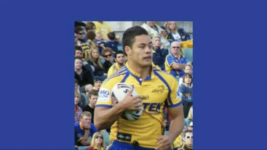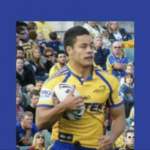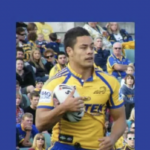What Factors Are Considered When Determining Whether to Pursue a Retrial in NSW?

Former NRL star Jaryd Hayne walked from prison a free man last week, after having his convictions for sexual assault offences quashed on appeal.
His fight for his freedom and reputation has been drawn out and complex, and the Office of the Director of Public Prosecutions (DPP) will now consider whether to subject him to a jury trial for the fourth time over sexual assault allegations made in 2018.
Conviction and sentence
Mr Hayne was convicted last year of two counts of sexual intercourse without consent – which is also known as the offence of sexual assault in New South Wales – and sentenced to four years and nine months behind bars, with a non-parole period of three years.
This was the result of Jaryd Hayne’s third trial on the same charges. The first ended in a hung jury, and the second resulted in a guilty verdict which was successfully appealed.
His proceedings have been remitted to the District Court of New South Wales and the NSW DPP is now tasked with determining whether to discontinue proceedings or try him for a fourth time,
Appeal to the NSWCCA
Mr Hayne appealed his convictions to the highest criminal court in our state, the New South Wales Court of Criminal Appeal (NSWCCA) on three grounds.
The first ground of appeal was that the jury’s verdict of guilty was unreasonable or unsupported by evidence. This ground was not upheld.
However, the court upheld the remaining two grounds of appeal.
The first related to the trial judge’s decision not to allow the defence to cross-examine the complainant about the fact she deleted and concealed messages that had been sent to a male acquaintance which suggested she had indeed consented to the conduct between her and Mr Hayne, before concealing those messages from investigating police.
The second related to a direction given to the jury about how to treat allegations that the complainant had lied.
The appeal came before a bench comprising three justices of the NSWCCA who decided in favour of Mr Hayne by a 2:1 majority.
The decision on whether or not to pursue a fourth trial now rests with the New South Wale DPP.
Factors taken into account when deciding whether to pursue a retrial in NSW
The decision regarding whether to pursue a retrial is guided by the current DPP Prosecution Guidelines, which are issued under section 13(1) of the Director of Public Prosecutions Act 1986.
The guideline for retrials is contained in the Chapter 1.8, which is titled ‘Retrials’, which provides as follows:
“Where a trial has ended without verdict, or when a retrial is ordered after the accused’s appeal against conviction is upheld, consideration should be given to whether or not a retrial is required.
Factors to be considered include:
- if the trial ended without a verdict:
a. whether the trial ended because the jury was unable to agree, or for another reason
b. whether another jury would be in a better or worse position to reach a verdict - if a retrial has been ordered after a successful conviction appeal, whether certain evidence has been ruled inadmissible
- in either case:
a. the seriousness of the matter
b. whether and to what extent the accused has spent time in custody
c. the cost of a retrial to the community and to the accused
d. the views of the victim and police in accordance with the principles of Chapter 5
e. whether evidence is still available
Where two juries have been unable to agree upon a verdict, a retrial will be directed only in exceptional circumstances. Any such direction must be given by the Director or a Deputy Director.
Where a jury has reached a verdict on some charges but is undecided on others, the following should be considered in addition to the above factors when determining whether to proceed on the remaining charges:
- the seriousness of the remaining charges
- the sentences the accused has received for the other charges.
The views of the victim and police should be taken into account in considering whether a matter should proceed to a retrial, in accordance with the principles in Chapter 5: Victims and witnesses. The complainant in prescribed sexual offence proceedings should be informed about the legislative provisions permitting his or her recorded evidence at the original trial to be tendered at a retrial.”
Will Mr Hayne be subjected to a fourth trial?
The part of the sub-chapter that applies to Mr Hayne is:
“[W]hen a retrial is ordered after the accused’s appeal against conviction is upheld, consideration should be given to whether or not a retrial is required.
Factors to be considered include:
- if the trial ended without a verdict:
a. whether the trial ended because the jury was unable to agree, or for another reason
b. whether another jury would be in a better or worse position to reach a verdict - if a retrial has been ordered after a successful conviction appeal, whether certain evidence has been ruled inadmissible
- in either case:
a. the seriousness of the matter
b. whether and to what extent the accused has spent time in custody
c. the cost of a retrial to the community and to the accused
d. the views of the victim and police in accordance with the principles of Chapter 5
e. whether evidence is still available”
Factors that appear to work in favour of Mr Hayne is the fact he has already spent two years or so of a minimum three year sentence in custody and that a retrial would be an expensive exercise in circumstances where the state has already expended significant resources of three preceding trials.
Factors that may work against Mr Hayne include the seriousness of the allegations and the fact evidence appears to remain available.
Chapter 1.8 also allows for consideration of the potential for a hung jury – an outcome which has already occurred in the proceedings against Mr Hayne.
The balancing exercise will ultimately fall in the hands of the state’s top prosecutor, who is currently Director of Public Prosecutions Sally Dowling SC.
Civil proceedings
The female complainant in Mr Hayne’s case commenced civil proceedings against the former star in 2021, seeking compensation for the damage caused by the assault.
The claim was put on hold pending the outcome of Mr Hayne’s criminal proceedings, but is expected to continue once the matter is ultimately finalised.





